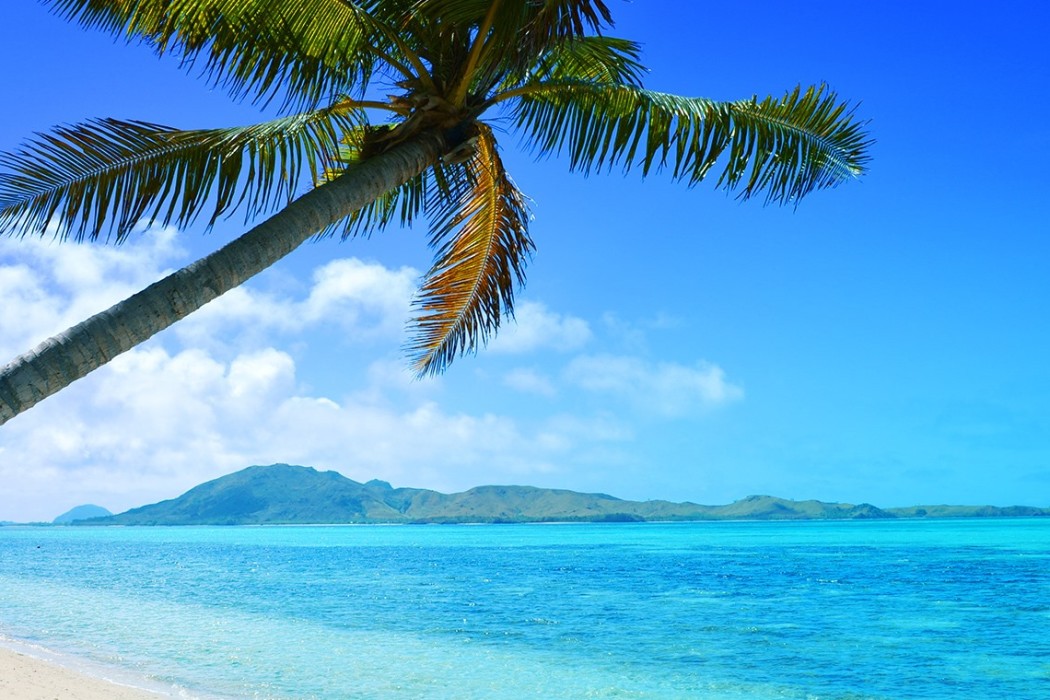Bula. A word said so many times that it would lose all meaning by the end of the trip. You see, in Fiji, it’s more than just a word. It’s a sound, an exchange, a feeling that embodies positivity and means almost everything: hello, welcome, ‘sup, health, happiness, love, life, existence, sex, yes, thank you, and pretty much everything in between.
Fijians like to philosophise about the subtle abstraction of the word, but there’s nothing subtle or abstract about Fiji or its people. They’re best amongst us: the pure of heart, the good Samaritans, the hopeless inertia of honesty and hard work, the transnational smile, the lazy breeze that cools your temper, and the shade of palm when God brings the sun in too close.
We drive – we drive and we drive – and everyone knows where we’re going: one of the five-star resorts. But unlike other countries I’ve visited, there’s no resentment, no embarrassment, no hostility, no trying to make this whole luxury thing work.
Driving – taxiing – is one of the most prestigious and rewarding jobs a person can do here. There’s nothing menial about anything that Fijians do. Like the Japanese, every job, every task, every action has a purpose; it’s owned and lived, and everyone wants to talk about it. Not just talk, though, but thank you for listening, for being there, to make you understand the magnificence of Fiji, the magnitude of your presence, and how you are supporting a newly-created welfare system that is funding healthcare, infrastructure and education.
I feel odd, stupid, regressive. The public and social services we’re blindly relinquishing in the UK, due to the austerity and Brexit, are the very things Fijians are only just discovering. I can’t explain this to them. They couldn’t even begin to understand. They can barely believe their own turn of fortune, let alone comprehend how and why a model society like ours would systematically self-destruct. This is a country that was recently hit by a cyclone, which, as our driver tells us, has set it back 10 years. How could I possibly tell anyone that, back in the UK, a nation so revered by Fijians, we’ve just voted to do the same.
The difference is that Fiji is literally building its way out of destitution. Here’s a place that’s only just discovering indulgence and excess. It’s investing in luxury hotels, making exclusive resorts out of paradisiacal desert islands, and importing refined gastronomic knowledge from its more pretentious neighbours.
In parts, it’s working. However, driving through the villages is like turning over a big rock. Reality sets in like rigor mortis. You begin to see what’s going on away from the private jets and espresso martinis.
Technicolour washing lines border the roadside. Second-hand clothes wave like flags of hardship and scarcity. Jumble-sale children wear t-shirts emblazoned with the names of American cities and sports teams that they’ll never get to see. Billboards sell crackers and chewing gum with slogans and imagery that was last seen in the 80s, yet the people here still can’t afford them. In this post-cyclone land, your house is a corrugated iron shanty; bleak, even in the brazen sunlight, and devoid of everything except dirty deck chairs and the desperate need to turn the clock forward ten years.
It’s the side of Fiji that we’re not meant to see; the Fiji without marble bathrooms and overhead showers. This Fiji is the small child we see washing under a hose tap along the dusty roadside, blind to the inert future that lies ahead. Oblivious to her oblivion.
And, at least for now, she’ll remain unaware of where the tourists go, as they speed past to discover the promise of a Fiji she doesn’t know exists.
Read about Laith and Gemma’s wedding at Taveuni Palms
Read Laith’s review of Likuliku



Taveuni Palms, Fiji — The Review Magazine. Life. Style.The Review Magazine. Life. Style.
[…] Read Laith’s intro to Fiji […]